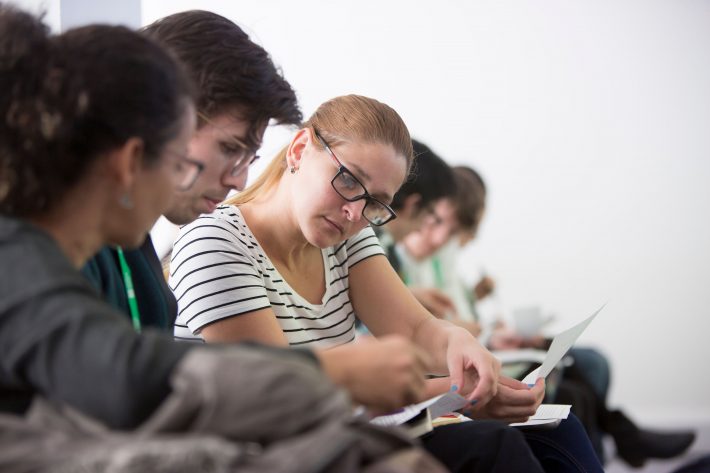Workshops
We are excited to announce the workshops running at our joint symposium.

Workshops are interactive sessions that encourage networking, skills development, and creative thinking. On the second day of the conference there will be an afternoon of parallel workshops, and delegates will be able to attend one of the below:
Nature for the National Adaptation Plans
Organisers: BES Climate Change Special Interest Group
The 3rd UK Climate Change Risk Assessment (CCRA3) highlights the urgent need for increased conservation action to address the widening gap to help biodiversity adapt to climate change. The UK governments need ecological input now, as the National Adaptation Plans are developed to address the vulnerabilities identified in the CCRA3. Workshop participants will assess evidence, knowledge gaps and solutions for selected natural environment risks highlighted in CCRA3, including risks and opportunities to both terrestrial, freshwater, and coastal species and habitats, carbon stores, species colonisations and changes in landscape character. Workshop outputs will be presented to Defra and relevant devolved government departments to inform the responses in the UKs National Adaptation Plans.
The now and the future of modeling at the climate-ecology interface
Organiser: Luke Christopher Evans, University of Reading
Predicting the responses of a single population to changing conditions is no simple task but understanding how future conditions will affect the biosphere requires modeling across various ecological, spatial, and temporal scales, for an enormous diversity of ecological systems. Projections for these systems must be built on sound methods and require clarity around the scope and uncertainty of both the ecological processes and the underlying climate and meteorological drivers. Applying this at the required scale is, therefore, a major challenge. In open discussion, we aim to sketch out: 1) currently available accessible tools/frameworks for efficiently producing high-quality models, 2) opportunities for new links between climate, meteorological and ecological modellers, and 3) the sociology of open interdisciplinary modeling i.e. how can we organise to maximise progress, produce robust and transparent projections, and include participants and collaborators from around the world.
The workshop will be highly interactive with participants sharing their thoughts on each of the key topics through structured discussion. Workshop outputs will be organised, shared between participants, and will be summarised in conference proceedings or a perspectives article for the ecological, meteorological, and climate modelling communities.
Promoting your research
Organisers: India Stephenson & Minhyuk Seo, British Ecological Society
You’ve produced an interesting piece of work and now the world needs to hear about it! But what are the different tools for promoting your research and how can you write a compelling, attention-grabbing story about it? In this interactive workshop, participants will learn about the different methods for communicating work to others, from working with the media to their own social media, with great tips from the British Ecological Society’s Press Office on how to find the newsworthy hook in a piece of research. Working in groups, participants will use what they’ve learned to assess the efficacy of different blog posts and press releases and practice the art of scientific storytelling so that their next article will receive the attention it deserves.
Nature-based solutions
Organiser: Vicky Pope
Nature-based solutions have an important role in the challenge of combating climate change in the context of sustainable development. They involve working with nature to address societal challenges, providing benefits for both human well-being and biodiversity. Specifically, they are actions that involve the protection, restoration, or management of natural and semi-natural ecosystems; the sustainable management working land and aquatic systems. They involve local communities in the decisions, actions, and benefits.
In this workshop we will examine the evidence for the benefits of nature-based solutions, and the practical implementation of them. We will explore the opportunities for spatial targeting – where will nature based solutions work best in a changing climate? How can climate science help us to understand this and the risks to the viability of solutions?
We will have a short panel giving some examples of practical solutions and the long term issues that affect viability. We will encourage participants to share their own experience. We will also provide information about a new journal led by the Royal Meteorological society on climate resilience and sustainability.
Like what we stand for?
Support our mission and help develop the next generation of ecologists by donating to the British Ecological Society.